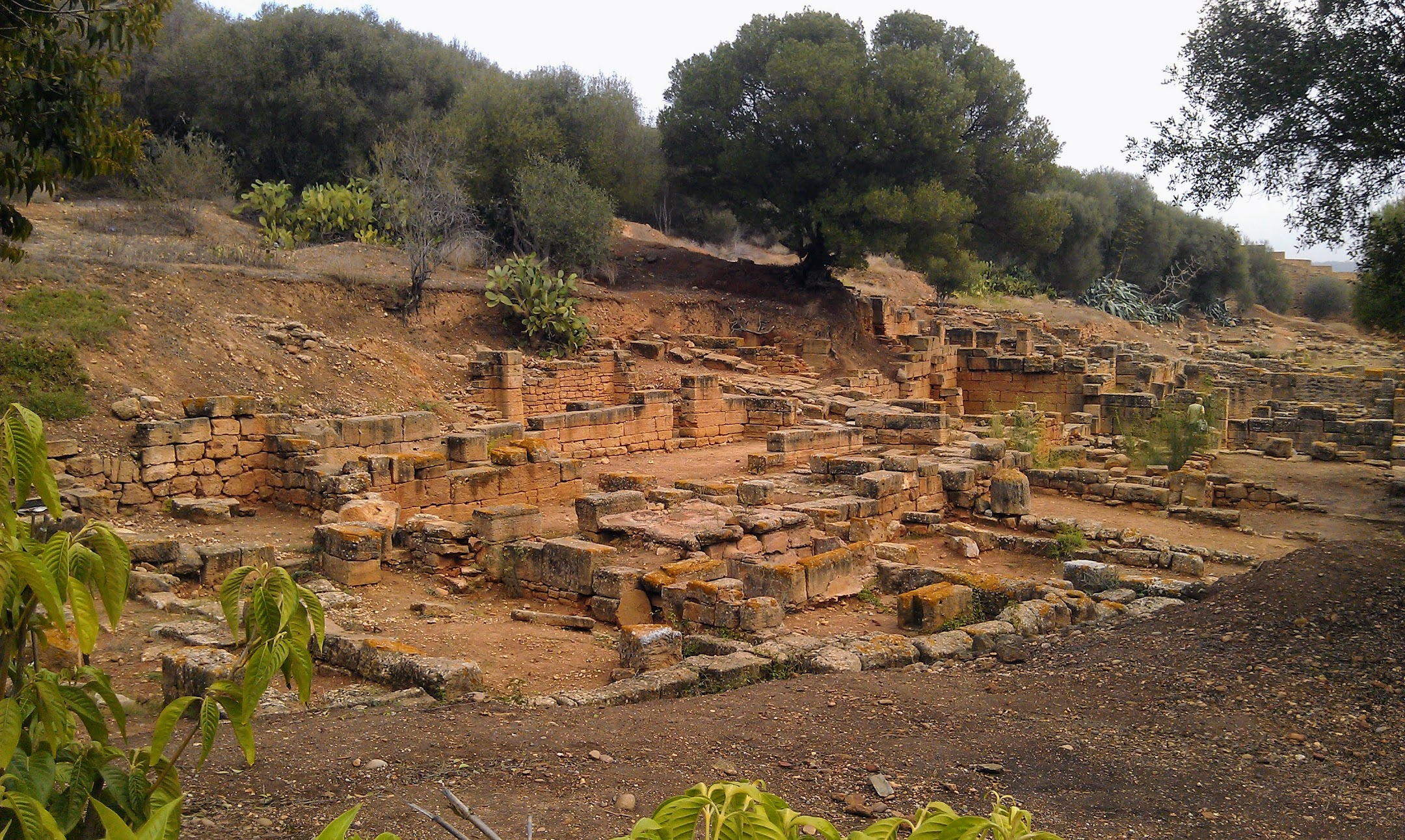AUTHOR’S NOTE, 2023: Heaven help those who revisit their decade-old writing. The piece below is over-the-top, post-apocalytic-zeitgeist-driven, and - worst of all - factually incorrect. At the time I was frankly guessing about the history of Mauretania Tingitana, I name-checked the wrong Ptolemey, and I referenced the Ostrogothic sack of Rome rather than the Visigothic. I have no excuse other than the whimsy of travel at the tail end of an era when the internet wasn’t available in everyone’s pockets all the time. I leave the text unedited as a warning to my own damn self. For the facts about Sala Colonia, Wikipedia remains a reasonable starting point.
I have the germ of a story for anyone inclined to write a novel of historical fiction:
The Phoenecians came to the mouth of the Bou Regreg river in the 6th century B.C., trading with Berbers who populated the stony but fertile sweep of land between the high Atlas and the open Atlantic. They were succeeded by the Carthaginian empire and then by the Romans at the dawn of the first century, who built a fortified outpost on the site called Sala Colonia. Ptolemy spared a few sentences for it. This was the Southwestern edge of the empire, but they appointed it with paved streets, running water and baths, with statues and temples. Unlike other outposts, it was garrisoned by legionnaires, Roman citizens far from home.
These soldiers maintained civil order and threw back forays by mountain tribes. As occupiers always do, they bartered pieces of their Roman identity for threads of Berber character. They mixed, they adapted.
And they were still there when - in 546 A.D. - the news reached them that Rome had been burned to the ground and its people scattered. That the Ostrogoths had ended the empire. Legions had been recalled from Britain, Iberia, Gaul and Syria - pulled back to defend the city - but the inhabitants of Sala Colonia had been overlooked. And they learned after it was done, that they were alone.
The closest modern analogue I can imagine would be if the transmission from Houston had gone dead while Armstrong and Aldrin were on the moon, victim to a nuclear strike at the start of armageddon. No home to return to.
This is overly-dramatic. Those in Sala Colonia more likely shrugged their shoulders and went on with their lives, turning toward their neighbors and away from the dead empire, waiting for the mist of antiquity to lift again centuries later when the Almohads would arrive, take control and initiate the vast, arching battle across Gibraltar for land and for souls that is still being fought today.
But I want to know the story of those Romans, of the tales they told their children of a place that no longer existed, of how they carried on.
